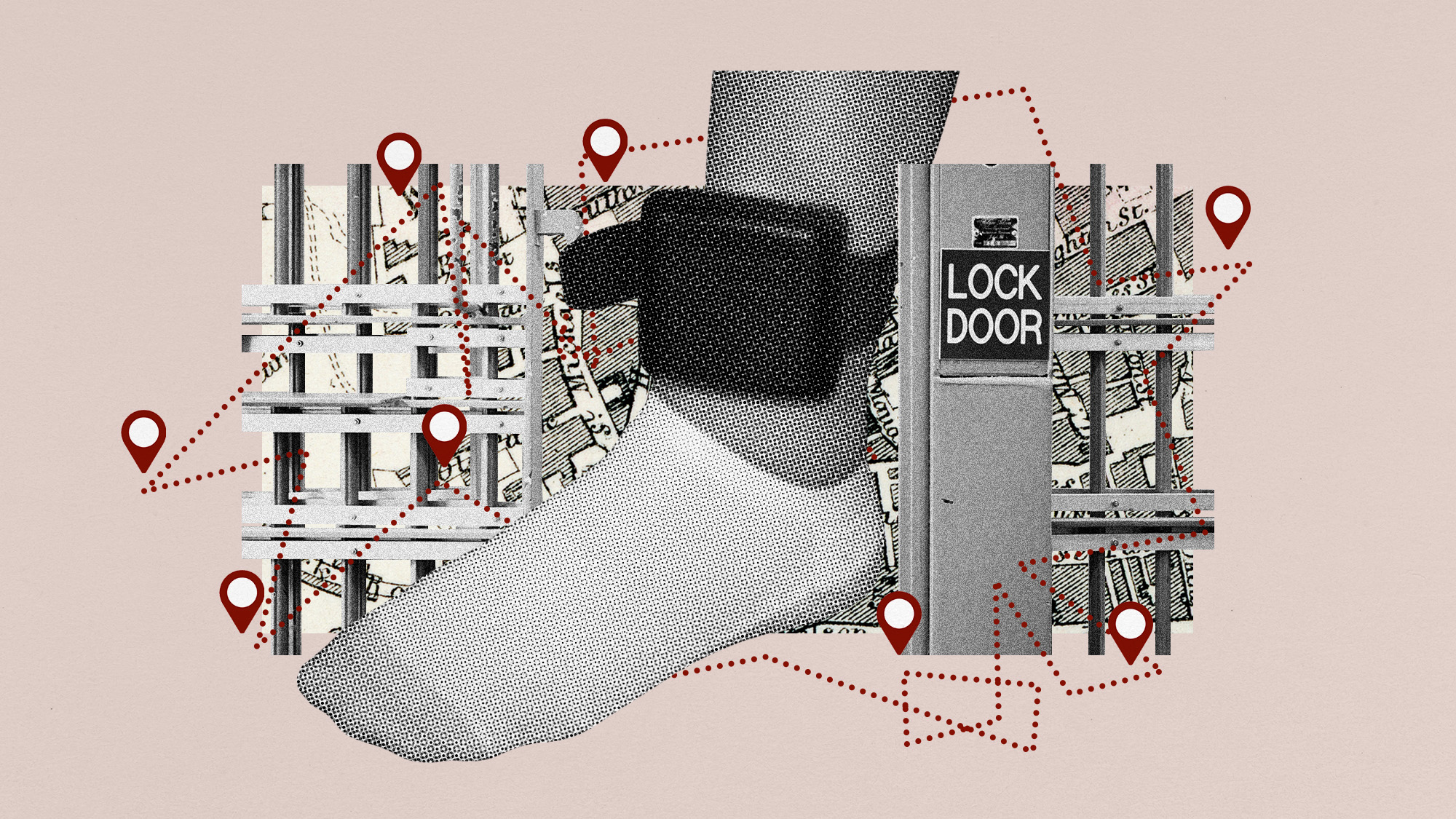Majority of inmates at women’s prison ‘have signs of brain injury’
New study links prevalence of severe head injuries to offending rates

A free daily email with the biggest news stories of the day – and the best features from TheWeek.com
You are now subscribed
Your newsletter sign-up was successful
A study of female prisoners has found that 65% of inmates at one women’s prison displayed signs of brain injury, raising questions about the link between traumatic brain injuries and criminal behaviour.
Researchers from the Disabilities Trust and London’s Royal Holloway university worked with inmates at HMP Drake Hall between 2016 and 2018.
The participants were assessed with the Brain Injury Screening Index, a system developed by the Trust consisting of 11 questions about medical history and past head injuries.
The Week
Escape your echo chamber. Get the facts behind the news, plus analysis from multiple perspectives.

Sign up for The Week's Free Newsletters
From our morning news briefing to a weekly Good News Newsletter, get the best of The Week delivered directly to your inbox.
From our morning news briefing to a weekly Good News Newsletter, get the best of The Week delivered directly to your inbox.
Of the 173 inmates assessed,“64% reported a history indicative of brain injury, and of those, almost all (96%) reported a history indicative of traumatic brain injury (TBI)”, according to a report outlining the findings, entitled Making the Link.
The report suggests a causative link between the disproportionately high number of female inmates who are survivors of domestic violence, and the high rates of brain injury.
Almost two-thirds of the women who reported a brain injury said it was the result of domestic violence.
Nearly half of inmates with a TBI had been in an adult prison five or more times, and a third said they sustained their first such injury prior to their first offence.
A free daily email with the biggest news stories of the day – and the best features from TheWeek.com
“The work adds to a growing body of research on the over-representation of people with brain injuries in the prison population,” says The Guardian.
A 2010 study found that 60% of inmates at a men’s prison reported having experienced head injuries. The researchers found that “adults with TBI were younger at entry into custodial systems and reported higher rates of repeat offending”.
Data shows that TBIs are linked to “increased risk of violence, earlier age of first incarceration, a greater number of convictions, re-conviction, mental health problems and a greater number of attempts at suicide”, says The Independent.
Rachael Mcnulty, the clinical supervisor for the study, said that people who have suffered brain damage “may be more prone to being impulsive and have less emotional resources to deal with anxiety or anger”, putting them at a higher risk of criminal offending.
“The research clearly demonstrates the link between life trauma and offending, violence, and victimisation,” she said.
The Disabilities Trust is calling for all prison inmates to be screened for brain injuries before beginning their sentence, so that those who need it can be offered appropriate support.
-
 The 8 best TV shows of the 1960s
The 8 best TV shows of the 1960sThe standout shows of this decade take viewers from outer space to the Wild West
-
 Microdramas are booming
Microdramas are boomingUnder the radar Scroll to watch a whole movie
-
 The Olympic timekeepers keeping the Games on track
The Olympic timekeepers keeping the Games on trackUnder the Radar Swiss watchmaking giant Omega has been at the finish line of every Olympic Games for nearly 100 years
-
 Insects and sewer water: the alleged conditions at 'Alligator Alcatraz'
Insects and sewer water: the alleged conditions at 'Alligator Alcatraz'The Explainer Hundreds of immigrants with no criminal charges in the United States are being held at the Florida facility
-
 Alcatraz: America's most infamous prison
Alcatraz: America's most infamous prisonThe Explainer Donald Trump wants to re-open notorious 'escape-proof' jail for 'most ruthless and violent prisoners' in the US
-
 Italy's prisons crisis
Italy's prisons crisisUnder the Radar Severe overcrowding, dire conditions and appalling violence have brought the Italian carceral system to boiling point
-
 DOJ demands changes at 'abhorrent' Atlanta jail
DOJ demands changes at 'abhorrent' Atlanta jailSpeed Read Georgia's Fulton County Jail subjects inmates to 'unconstitutional' conditions, the 16-month investigation found
-
 'Virtual prisons': how tech could let offenders serve time at home
'Virtual prisons': how tech could let offenders serve time at homeUnder The Radar New technology offers opportunities to address the jails crisis but does it 'miss the point'?
-
 The countries that could solve the UK prisons crisis
The countries that could solve the UK prisons crisisThe Explainer Britain's jails are at breaking point, and ministers are looking overseas for solutions
-
 DOJ investigates Tennessee's largest prison
DOJ investigates Tennessee's largest prisonSpeed Read Federal authorities are looking into reports of substantial violence and sexual abuse at Trousdale Turner Correctional Center
-
 Tuscany's idyllic island prison with a waiting list
Tuscany's idyllic island prison with a waiting listUnder the Radar Europe's last island prison houses 90 inmates and makes wine that sells for $100 a bottle